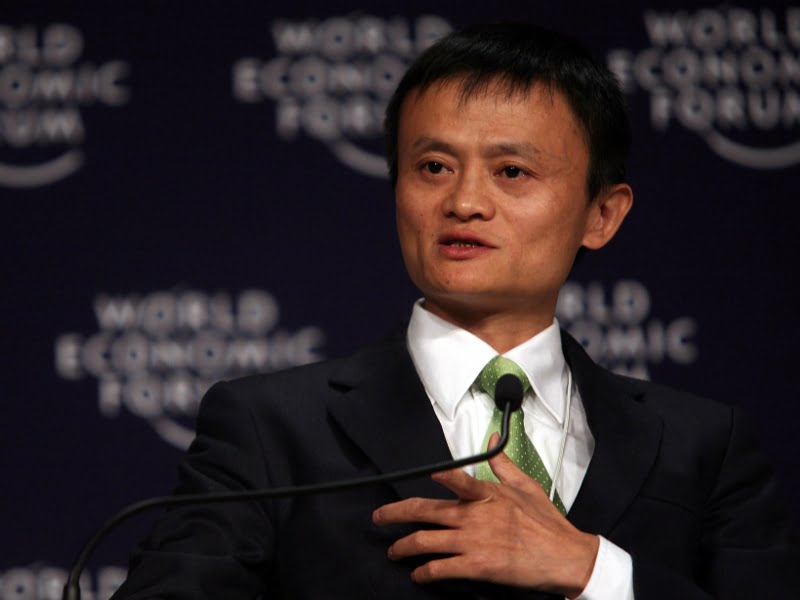Having a proven entrepreneurial nose for making the right (serial) bets on the next big trends in all things digital – including changing customer behaviour – and then spinning that all into a multi-billion dollar company gives a person a certain understandable cachet.
So when businessman Jack Ma, the founder and chairman of the Chinese e-commerce behemoth Alibaba – a company that is rapidly morphing into a media and finance conglomerate – speaks, everyone tends to stop and listen.
Jack Ma has reached a rarified status that few even in the quick-to-worship technology sector have been. In Asia and indeed most other parts of the world, his every utterance is hung upon in much the same way that US technology gurus like Bill Gates still is and Steve Jobs was.

His rivals at China’s three other big- tech companies, like search engine giant Baidu’s Robin Li, gaming and social media group Tencent’s Pony Ma and the owner of China’s twitter-like Sina Weibo’s Wang Zhidong don’t have quite the same heft.
In Asia, probably only Masayoshi Son, the founder and chief executive of Japanese technology investor Softbank has a star that shines quite so bright.
The thing about people like Mr Ma is that while they start by picking and following trends, they are – once in charge of incredibly wealthy and powerful companies – capable of helping to drive the trends.
Investors desperate to be on the crest of the next technology wave take the words of such spoke-oracles to heart, and so the money begins to flow. And this, in turn, opens up opportunities for agile and innovative technology companies to jump in and join the latest treasure hunt
This week the diminutive former school-teacher was the star attraction at the 2nd Asia Cooperation Dialogue in Thailand’s capital Bangkok, which is held every two years.
He used the platform to rail against the fashion of anti-globalisation commentary, and called upon the 34 nations present to focus on small businesses of less than 30, and people under the age of 30.
“In the past 30 years, globalisation featured 60,000 big companies,” Mr Ma said. “What if we can make hundreds and thousands of small businesses get involved? If we can make small businesses get involved in e-commerce [and] global trade, that would help a lot.”
“In the next 20 to 30 years, small is beautiful and powerful. We should give small businesses, developing nations and young people more opportunities.”
Mr Ma reaffirmed the need for an “e-road”, akin to the Silk Road, to help small businesses flourish.
“In the future, no matter how small a country is [or] your business is, if you have a big heart, open mind, and embrace tech knowledge and inclusive globalisation, you can be powerful too.”
“Data will be the new resource. So the next 30 years are critical for all nations in the ACD. To Asia, it is very critical,” he said.
Mr Ma recalled that few people believed Chinese e-commerce could grow rapidly due to poor infrastructure for online trading. But they had been proven wrong.
“Today, we [China] have the most mobile phone users in Asia. By using mobile phones, we can connect more than 4 billion people and leverage mobile technology for them to do business anywhere,” he said.
“The internet was invented in America, but I’m sure Asia can make full use of it.”
Austrade entered into a “strategic partnership” with Alibaba – which this year also opened its first office in Australia – but so far few details have emerged.
The problem is, of course – at some point, technology gurus get it wrong – or are too far ahead of the curve to make things stick, blowing up cash, companies and reputations.
Look at Bill Gates failures to appreciate both the bewildering rise of the internet and the mobile smartphone. Indeed, it happened to Mr Jobs early in his career and he went away and roared back with some vengeance indeed.
Still, Mr Ma’s latest soothsaying is hardly a major shift of direction, so barely the chance of a fumble.
It’s not earth shattering nor rocket science. But it does at least lay some pointers for smart technology companies wanting to dip their toes into the vast and potentially lucrative Asian markets.
Do you know more? Contact James Riley via Email.

